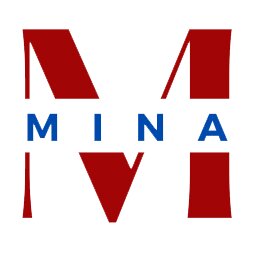Best Disability Lawyers in Hanoi
Share your needs with us, get contacted by law firms.
Free. Takes 2 min.
List of the best lawyers in Hanoi, Vietnam
About Disability Law in Hanoi, Vietnam
Disability law in Hanoi, Vietnam, is designed to protect the rights and ensure the welfare of individuals with disabilities. It encompasses a range of legal measures, from non-discrimination and equal opportunities in employment and education to accessibility standards in public facilities and transportation. The government of Vietnam has taken steps to align its policies with international standards, including the United Nations Convention on the Rights of Persons with Disabilities (CRPD), which Vietnam ratified in 2015.
Why You May Need a Lawyer
There are several situations in which an individual with a disability, or their family, may seek legal counsel in Hanoi. These situations include discrimination in the workplace, denial of reasonable accommodation in employment or education, challenges with accessibility in public places, disputes about disability benefits, or issues regarding guardianship and legal capacity. A lawyer specialized in disability law can help navigate the complexities of the legal system and ensure that the rights of individuals with disabilities are protected and upheld.
Local Laws Overview
Key legal documents that govern disability rights in Vietnam include the Law on Persons with Disabilities (2010), which provides a comprehensive legal framework for disability issues, and the National Action Plan to Support People with Disabilities. The law defines disability, prohibits discrimination, and stipulates the obligations of the state, organizations, and families towards individuals with disabilities. Accessibility standards are specified in Vietnamese construction regulations, mandating reasonable adjustments in buildings and public spaces to accommodate people with disabilities. Additionally, there are various legal decisions and circulars that provide guidelines on the implementation of disability law, such as employment quotas and support in education.
Frequently Asked Questions
What rights do individuals with disabilities have in Hanoi, Vietnam?
Individuals with disabilities in Hanoi have rights to non-discrimination, equal participation in society, access to healthcare services, education, employment, and accessibility in public places, among others.
Is there a quota system for employing individuals with disabilities in Vietnam?
Yes, there is a quota system that requires certain employers to have a percentage of their workforce composed of individuals with disabilities, or alternatively, they must contribute to a fund for assisting people with disabilities.
What should I do if I face discrimination at work due to my disability?
If you face discrimination at work, you should gather evidence of the discriminatory acts and seek consultation from a lawyer who specializes in disability rights to discuss your legal options.
Are public buildings in Hanoi required to be accessible to individuals with disabilities?
Public buildings in Hanoi are required by law to meet certain accessibility standards to facilitate access for individuals with disabilities, although the degree of compliance may vary.
How are children with disabilities supported in the Vietnamese education system?
Children with disabilities are supported through inclusive education policies, special education programs, and individual accommodations to ensure they have equal access to educational opportunities.
What are the legal implications of guardianship for adults with disabilities in Vietnam?
Guardianship laws outline the process for appointing a guardian for adults with disabilities who are deemed partially or fully incapable of caring for themselves, ensuring their rights and interests are safeguarded.
How can I apply for disability benefits in Hanoi?
To apply for disability benefits, you should contact the local social security office and provide the required medical documentation and personal information to determine your eligibility for assistance.
What is the role of the Vietnam Federation on Disability (VFD)?
The VFD is a non-governmental organization that advocates for the rights of people with disabilities, offers support and resources, and works towards creating an inclusive society in Vietnam.
Who is responsible for implementing disability laws in Vietnam?
Various government ministries and agencies at national and local levels are responsible for implementing disability laws, with coordination often led by the Ministry of Labour, Invalids and Social Affairs (MOLISA).
Can a foreign national with a disability receive the same protections in Hanoi?
Foreign nationals with disabilities are entitled to protections against discrimination and have the right to access public facilities. However, they may face challenges in accessing some local support services designated for Vietnamese citizens.
Additional Resources
Additional resources for those seeking information or legal advice on disability law in Hanoi, Vietnam, include the Ministry of Labour, Invalids and Social Affairs (MOLISA), Vietnam Federation on Disability (VFD), and various non-profit organizations and international NGOs operating in Vietnam that specialize in disability rights and services.
Next Steps
If you require legal assistance in the area of disability in Hanoi, consider taking the following steps: Firstly, gather all relevant documents related to your situation. Secondly, seek out a reputable local lawyer or law firm that specializes in disability law. Thirdly, reach out to organizations such as VFD for guidance and potential resources. Lastly, ensure you understand your rights and the legal process involved in resolving your situation.
Lawzana helps you find the best lawyers and law firms in Hanoi through a curated and pre-screened list of qualified legal professionals. Our platform offers rankings and detailed profiles of attorneys and law firms, allowing you to compare based on practice areas, including Disability, experience, and client feedback.
Each profile includes a description of the firm's areas of practice, client reviews, team members and partners, year of establishment, spoken languages, office locations, contact information, social media presence, and any published articles or resources. Most firms on our platform speak English and are experienced in both local and international legal matters.
Get a quote from top-rated law firms in Hanoi, Vietnam — quickly, securely, and without unnecessary hassle.
Disclaimer:
The information provided on this page is for general informational purposes only and does not constitute legal advice. While we strive to ensure the accuracy and relevance of the content, legal information may change over time, and interpretations of the law can vary. You should always consult with a qualified legal professional for advice specific to your situation.
We disclaim all liability for actions taken or not taken based on the content of this page. If you believe any information is incorrect or outdated, please contact us, and we will review and update it where appropriate.













